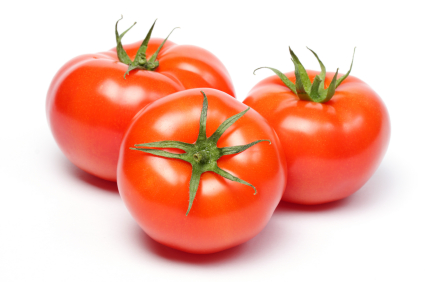 Eat a slice of fresh tomato from the supermarket or at a restaurant this winter, and chances are it will have come from a field in south-central Florida, site of 90 percent of U.S. winter tomato production.
Eat a slice of fresh tomato from the supermarket or at a restaurant this winter, and chances are it will have come from a field in south-central Florida, site of 90 percent of U.S. winter tomato production.
And this year, there’s a fighting chance that the worker who picked it might have made something close to a living wage. That’s because huge Florida farm called East Coast Growers and Packers–one of the state’s four largest tomato tomato growers–has agreed to deliver a penny-per-pound raise to farm workers, representing a pay boost of about 64 percent. With East Coast committed to making sure the raise end’s up in farm workers’ pockets, the state’s other large growers may soon follow suit.
The movement to improve conditions for Florida’s pickers has been a long and difficult one. The scrappy worker-led Coalition of Immokalee Workers (CIW) has been pushing for decades to improve conditions and pay in tomato country. I visited the the area myself last spring–and was stunned to see that despite all the progress and publicity, living conditions remain dismal and pay absurdly low. Given that level of normal, everyday exploitation, it’s not surprising that in extreme situations, cases of modern-day slavery regularly crop up in the area.
Years ago, the CIW realized that merely demanding raises from the area’s large-scale tomato growers wasn’t likely to improve conditions much. The growers themselves operate in a highly competitive market, dominated by large-scale food industry buyers like Wal-Mart and McDonald’s. Those companies used their market power to keep tomato prices low–if Florida’s growers don’t like the prices they were offering, they could threaten to buy their tomatoes from Mexico.
Squeezed from the top by their buyers, the growers eked out profit by in turn squeezing their workers–keeping wages as low as possible.
The CIW realized that the only way to wriggle free from this double squeeze was to go around the growers and straight to the companies at the top of the food chain.
And that’s what CIW did, starting with fast-food operations. Of course, the business model of the fast food industry is to buy ingredients as cheaply as possible, tweak them into products with mass appeal, and sell those products at attractively cheap prices. Profits margins are low, but great profits can be made at high volume. In other words, McDonald’s might make only a few dimes off of each $3.50 Big Mac, but if you can sell many millions of them of them, you’re rolling in dough.
So fast-food companies had little initial interest in complying with the CIW’s request for a penny-per-pound raise. When your profitability depends on high volume and low prices, pinching pennies rises to the level of business creed.
So the CIW went to the public, methodically targeting the fast-food giants with boycotts. One by one they fell: First Taco Bell (owned by Yum Brands), then McDonald’s, and then Burger King. They all eventually agreed, kicking and screaming, to pay the extra penny to tomato pickers.
Then things got weird. Two years ago, the Florida Tomato Growers Exchange, a cooperative representing the state’s industrial-scale tomato farms, balked. Perhaps stung by the workers’ success and emerging sense of power, the FTGE slammed the door shut on the raise. The group announced it would impose a draconian fine on any grower who passed on the penny per pound raise.
Since then, workers have been getting the same old wage–about 50 cents for every 32-pound bucket they harvest. Adjusted for inflation, their wages have fallen steadily over the decades and remain firmly below the poverty line. The extra penny per pound paid by the CIW signees languished in an escrow account. Meanwhile, other, non-fast food tomato buyers like Bon Appetit Management and Whole Foods signed the CIW agreement. Those pennies, too, went into escrow.
And this is why the agreement with East Coast Growers and Packers is so significant. The operation is defying the FTGE and passing the raise directly to the workers. And the raise is significant. It will push the per-bucket rate from 50 cents to 82 cents–a 64 percent raise.
And with mega-companies like McDonald’s directing their business to East Coast because of the deal, it seems likely that other growers will relent, too–and the Florida Tomato Growers Exchange’s absurd campaign to block the raise will collapse.
Meanwhile, the CIW is turning up pressure on those other huge buyers in the tomato market–the mass-scale grocery chains.
Once all workers in the area retain basic human rights including decent working/living conditions, it will be time to focus on another massive problem in Florida’s vast mono-criopped tomato fields: widespread use of highly toxic pesticides.
A note on Chipotle Grill, which announced in a Tuesday press release that it had “reached an agreement with East Coast Farms, one of Florida’s largest tomato growers, under which workers who harvest tomatoes for Chipotle will receive an additional penny per pound.”
Chipotle had come under fire, including from me, for its refusal to sign an agreement with the CIW. While the burrito chain should be commended for joining CIW and its previuos signees’ efforts to push East Coast into accepting the raise, it’s puzzling that Chipotle would present this important agreement as a one-off deal between a large grower and one company. Happily, the East Coast agreement is much larger than that.


